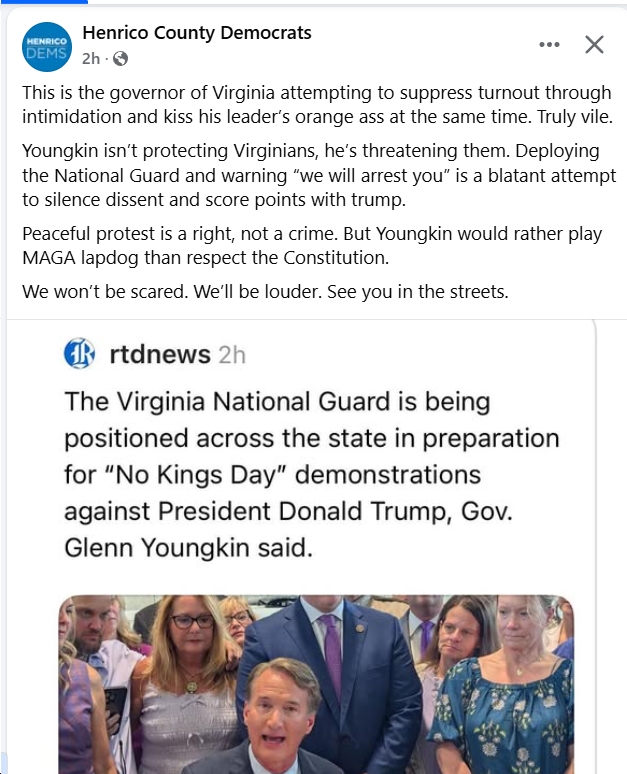With just 11 days to go until Election Day 2014, and the near certainty that Democrats will lose at least a few seats in the Senate and House, I can just here them now. No, not the cheers of victory or the cries of defeat – although I can certainly imagine what those will sound like – but the excuses, torrents of excuses, that will be flowing from Democratic campaign operatives of all types, trying desperately to shift the blame for their losses to others. For instance, as this article in Bloomberg yesterday put it, “Years of disappointment and tension between Democrats and their president are now on open display as politicians, party leaders and strategists worried about their chances in the midterm elections begin casting about for someone to blame.” That’s the kind of thing I’m talking about. With that, here are some of the top excuses you’ll probably be hearing from losing campaigns after November 4, graded from “A” (makes a great deal of sense) to “F” (makes no sense whatsoever, utter b.s.).
1. “It’s President Obama’s fault”. This one gets a “C-/D+” grade at best. Why so low? Because the history is clear: since World War II, the party holding the White House tends to lose around 26 seats in the House and around six seats in the Senate during the “6-year itch” mid-terms (the second mid-terms of a two-term president’s eight years in office). The biggest losses occurred under Eisenhower, Ford, Bush and Truman, with somewhat lower losses under Reagan (at least in the House; Republicans lost eight seats in the Senate in 1986). So, basically, this is just what happens in mid-terms to the party in power, Republican or Democratic. On the other hand, Barack Obama’s approval ratings are anemic at best, in the lost 40s, so that’s why I gave this one a “C-/D+” not an “F” grade. On yet ANOTHER hand (how many hands do we have, anyway? LOL), though, Obama’s approval rating hasn’t really changed throughout 2014, so the same campaigns that were claiming all year that they could win – and asking for money to do so – can’t now honestly turn around and claim that Obama’s 40%-45% approval ratings constitute some sort of new factor in their calculations.
2. “The national political/economic climate”: I’d give this one a “C-/D+” for similar reasons as in #1 — the political/economic climate hasn’t really changed all year, plus it’s Democrats’ own fault to a large extent if they couldn’t figure out a way to turn whatever anger’s out there against Republicans, whose obstructionism, sequestration, shutting down the government, austerity policies, refusal to invest in our nation’s infrastructure, refusal to kickstart a more rapid transition to a clean energy economy, etc., etc. have contributed so much to the problems we have.
3. “The DCCC/DSCC/DNC/whoever abandoned us.” I’d give this one a “C-/D+” as well, as it’s basically just whining. The fact is, candidates aren’t entitled to money from national Democrats, who have dozens (hundreds?) of races they are dealing with. If they got a bunch of money from national Democrats, great, but to claim that they didn’t get enough (I can just hear it now, “if we only had another [fill in the blank] dollars to run TV ads we could have won!”) is just lame. It’s particularly lame since most of that money was wasted on extremely low “bang-for-the-buck” TV ads (I’ll have some more thoughts on that at some point in the next couple weeks) in expensive media markets where most of the people reached by the ads: a) don’t live in the district; b) aren’t likely voters in the district; and c) aren’t truly “persuadable” likely voters in the district. So spare us all the whining.
4. Grab bag: Ebola, stock market gyrations, ISIS, whatever. This one gets an “F” grade hands down. Look, let’s face it, s*** happens in the world, including in the final months of election years. That’s just reality. If Democrats can’t get their messaging act together on this stuff, that’s overwhelmingly on them.
5. “The media didn’t do its job.”: I’d give this one a bit higher grade, maybe a “B-/C+,” as it’s true that the corporate media truly is abysmal. And it’s only gotten worse in recent years as the media has continued its decline. I mean, when was the last time the corporate media really covered a Congressional race, let alone covered it well? Other than superficiality (e.g., who’s more “exciting,” a “better speaker,” blah blah blah) and “horse race” (who’s up, who’s down, ad nauseum), media coverage of our elections is shallow, thin, “both sides” false equivalency bull****, and just plain lame. So why not give this one an “A” grade then? Because, again, none of this is really a surprise — the media’s political coverage has sucked for years now — and it’s up to campaigns to figure out how to deal with that (e.g., by getting their message out via social media channels, by investing more heavily in field, by use of well-crafted and well-targeted direct mail, by not embarrassing themselves with cringe-inducing email fundraising campaigns).
6. “Our voters didn’t turn out.” Yes, there’s some truth to the fact that Democratic voters tend to turn out in proportionally lower numbers than Republicans in off-year elections. But Democrats also need to figure out ways to fix this problem (Terry McAuliffe’s campaign did it pretty effectively, as far as I can determine, in 2013). Also, this should have been largely built into assumptions of campaigns from the beginning. Finally, perhaps voters would have been more likely to turn out if the candidates had given them something to get excited, inspired, passionate about? Just a thought. 🙂 Anyway, since blaming the customer is never a good strategy, whether in business or in politics, I’d give this one a “D” grade.
So, that’s what I’ve got for now. Any others that should be on this list? Please add them in the comments section if you think of them. Thanks.
P.S. A really smart national Dem asked me, ” if you rate all of the answers as fizzles, what do you pin this on? Longer-term underlying factors such as candidate recruitment and pipeline development, a lack of focus on state races, a short attention span for building progressive infrastructure, etc.? My answer: yes, all of those, plus the natural mid-term, second-term losses expected for the party in power.















